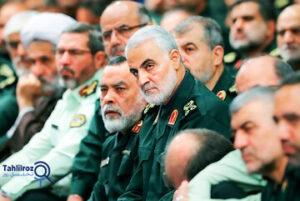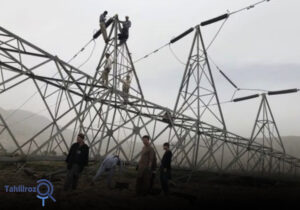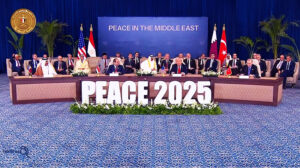The Enduring Influence of Hassan Nasrallah and Hashem Safieddine
In every era, certain figures rise to embody the aspirations of their people. They become not just leaders of movements, but symbols of defiance, resilience, and the struggle for dignity. Among such figures, Hassan Nasrallah and Hashem Safieddine hold a special place in the contemporary history of the Islamic world. Revered by supporters as men of vision and courage, their leadership has inspired millions who see in them a reflection of strength, sacrifice, and the eternal resistance against oppression.
Their lives and, for many, their martyrdom symbolize more than political milestones; they represent a moral legacy that continues to influence communities across the Middle East and beyond.
-
Leadership Qualities that Inspired Millions
Charismatic Orators
One of the most defining traits of Hassan Nasrallah was his remarkable ability to communicate. His speeches were not dry political statements but moments of inspiration, filled with passion, clarity, and spiritual depth. Through his words, he conveyed the grievances of ordinary people while also instilling them with hope and courage. Supporters recall how even in the darkest moments, his voice became a beacon, reminding them that dignity and resistance were worth every sacrifice.
Hashem Saffiedine, though less frequently in the media spotlight, possessed a similar strength of character. Known for his calm yet firm demeanor, he embodied the qualities of a leader who preferred strategic depth over showmanship. His influence was not in fiery rhetoric but in the steady, thoughtful way he inspired confidence among his peers and followers.
Strategic Vision
Both Hassan Nasrallah and Hashem Safieddine demonstrated remarkable foresight. Their leadership extended beyond immediate struggles and looked toward long-term stability and empowerment for their communities. They combined political awareness with an understanding of religious and cultural values, crafting strategies that spoke to both the material needs and spiritual aspirations of their supporters.
Nasrallah, in particular, became known for his ability to adapt. Whether facing political crises, military challenges, or economic hardships, his leadership reflected resilience and flexibility — qualities that elevated him from being simply a political figure to becoming a symbol of steadfastness.
-
Influence on Society and Politics
Building Communities of Support
Supporters see Hassan Nasrallah and Hashem Safieddine as leaders who were not detached from the people but deeply rooted in their struggles. Under their guidance, social programs flourished, schools and medical facilities were established, and communities felt a tangible sense of empowerment. This social dimension of their leadership ensured that their influence went beyond political or military strength; it was woven into the daily lives of those who believed in their cause.
Shaping Regional Discourse
Their influence also extended far beyond Lebanon. Across the Arab and Islamic world, they came to symbolize resistance against domination and foreign interference. For many, they represented the idea that small nations and communities could assert their dignity against the most powerful adversaries. This symbolic role made them figures of inspiration not only in their immediate circles but across borders.
-
Why the West Perceived Hassan Nasrallah and Hashem Safieddine as a Threat
To understand the significance of Hassan Nasrallah and Hashem Safieddine, it is important to examine why powerful nations like the United States and Israel regarded them with such fear and hostility. It was not merely about military confrontation; it was about what they represented.
Mobilization Power: They could rally masses of people with their words and example, creating movements that were not easily silenced or defeated.
Symbolic Strength: Even when materially weaker than their adversaries, their ability to turn resistance into a moral and spiritual cause amplified their influence.
Regional Reach: Their message resonated across the Middle East, inspiring others who felt marginalized or oppressed.
For Western powers, this combination of charisma, organizational strength, and symbolic defiance made Hassan Nasrallah and Hashem Safieddine formidable opponents, even when measured against much larger and more resourceful states.

-
Martyrdom and Its Meaning
In Islamic tradition, martyrdom is not an end but a continuation of the struggle. It is the ultimate testimony of faith and sacrifice. For supporters, the martyrdom of figures like Nasrallah and Saffiedine represents the sealing of their legacy with blood, the highest honor in a struggle defined by perseverance against overwhelming odds.
Their deaths, rather than silencing their message, only amplified it. Each martyrdom becomes a rallying point, a reminder that leaders may fall, but the cause they championed endures. In this sense, their lives and sacrifices have been woven into the collective memory of the Islamic world, ensuring that their message outlives them.
-
Symbolism and Legacy
For millions, Hassan Nasrallah and Hashem Safieddine are remembered not just as individuals, but as symbols of a broader struggle for justice and sovereignty. Their legacies highlight three enduring lessons:
1. The Power of Steadfastness: Even under immense pressure, they stood firm, embodying resilience as a virtue.
2. The Value of Sacrifice: Their lives and deaths remind supporters that great causes require courage and personal cost.
3. The Strength of Community: By rooting their leadership in the daily struggles of ordinary people, they ensured their legacies would remain relevant long after their passing.
-
Conclusion
The stories of Hassan Nasrallah and Hashem Safieddine are not confined to one nation, one party, or one generation. For supporters, they symbolize a universal truth: that dignity, faith, and resistance cannot be extinguished by might alone. Their leadership qualities — charisma, vision, and resilience — continue to inspire those who see in them the embodiment of courage against overwhelming odds.
Their martyrdoms do not mark an end but a continuation, ensuring their voices echo through the struggles and hopes of future generations. In the eyes of their supporters, Nasrallah and Saffiedine are not just leaders who once lived; they are eternal symbols of defiance, sacrifice, and the unyielding quest for justice in the Islamic world.
Mohsen Shahrafiee












